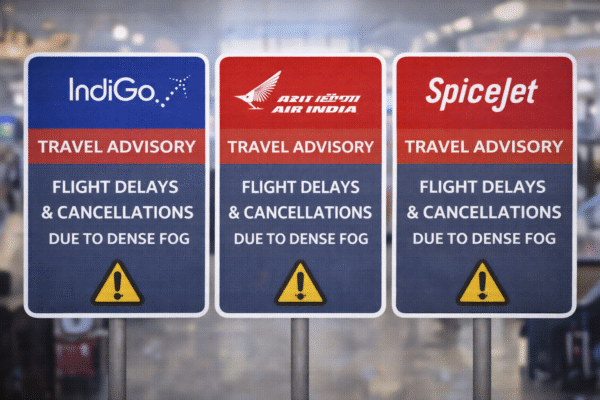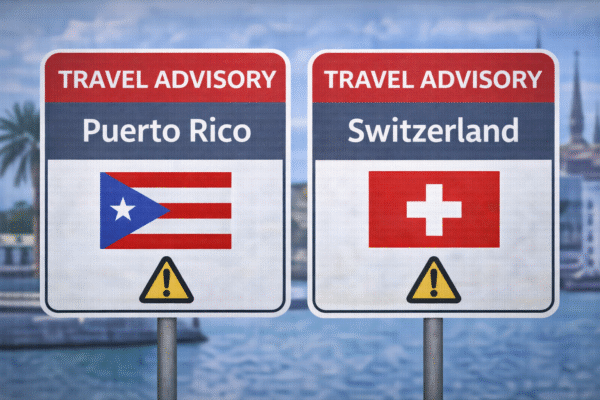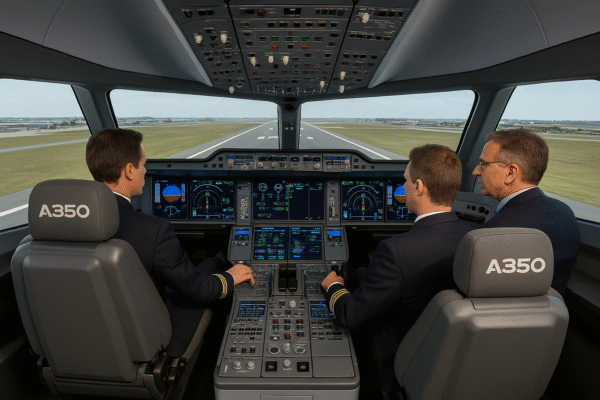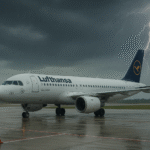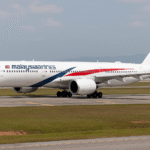KLM Royal Dutch Airlines has taken a groundbreaking step in aviation training with the launch of the Netherlands’ very first Airbus A350 flight simulator. This state-of-the-art facility is not only a significant investment in pilot training but also a cornerstone of the airline’s preparations for introducing the Airbus A350 into its long-haul fleet. The development represents KLM’s commitment to safety, innovation, and sustainability, ensuring its pilots are fully equipped for the future of international air travel.
The simulator’s unveiling at Schiphol-East marks a historic moment for both the airline and the Dutch aviation industry. It establishes the Netherlands as a hub for next-generation pilot training, positioning KLM as a leader in operational excellence across Europe.
Preparing for the Arrival of the Airbus A350
KLM is set to welcome its first Airbus A350 aircraft to Amsterdam Schiphol Airport in 2026. Known as one of the most advanced and eco-friendly widebody aircraft in the world, the A350 combines cutting-edge materials, lightweight composites, and next-generation engines that reduce fuel consumption and emissions.
The new flight simulator ensures that KLM pilots will be ready to operate this aircraft before it officially enters service. With training programs designed to mirror real-world scenarios, pilots will gain essential experience in both normal and emergency operations. This proactive approach guarantees a smooth and safe integration of the A350 into KLM’s long-haul routes.
The Technology Behind the Simulator
Built by CAE, a global leader in aviation training systems, the Airbus A350 simulator replicates the cockpit of the aircraft with remarkable precision. From the flight management system to the avionics, every detail has been reproduced to provide pilots with a highly immersive training environment.
Pilots can practice standard operating procedures, emergency scenarios, and abnormal conditions in a controlled setting. This kind of high-fidelity training is critical to enhancing situational awareness, decision-making skills, and confidence.
The simulator was transported from Montreal, Canada, to Schiphol in multiple sections due to its sheer size. The installation process was a feat of logistics, requiring the equipment to be lifted over airport perimeter fencing before being assembled and calibrated. Today, it stands as one of the most advanced aviation training facilities in Europe.
Reinforcing Safety and Operational Excellence
For KLM, safety has always been the highest priority, and the new A350 simulator further strengthens that commitment. The training programs offered on the simulator comply with international aviation safety standards, ensuring that pilots are trained to the highest levels of proficiency.
The simulator allows pilots to rehearse various flight conditions, ranging from crosswinds and turbulence to technical malfunctions and emergency landings. This ensures that flight crews can react swiftly and effectively in real-world situations, safeguarding passengers and crew alike.
Driving Sustainability Through Modern Fleet Development
The introduction of the Airbus A350 into KLM’s long-haul fleet is not only about operational efficiency but also about sustainability. The aircraft is designed to consume up to 25% less fuel compared to older models and significantly reduce carbon emissions. Noise pollution is also reduced by nearly 40%, benefiting both airport communities and passengers.
For travelers, the Airbus A350 promises a superior onboard experience. With improved cabin pressurization, better air quality, and quieter interiors, passengers can expect a more comfortable and enjoyable journey on long-haul routes.
By investing in the A350, KLM is aligning with its long-term environmental strategy, reaffirming its role as a responsible global airline committed to greener skies.
Schiphol-East: A European Training Hub
Schiphol-East, already a hub for aviation training, is now home to one of the most advanced flight simulators in Europe. KLM has invested heavily in its training infrastructure to ensure pilots receive world-class instruction on multiple aircraft types. The addition of the A350 simulator enhances this reputation, making Schiphol a central hub for aviation training in the region.
This investment also reflects the complexities airlines face when implementing advanced training technologies. From logistics to assembly, the process requires meticulous planning. Despite these challenges, KLM has successfully positioned itself at the forefront of aviation training innovation.
Looking Toward the Future of Air Travel
As the aviation industry recovers from global disruptions and embraces sustainability, the Airbus A350 will play a vital role in reshaping long-haul travel. For KLM, this simulator marks more than just a training upgrade; it represents the airline’s forward-thinking approach to preparing for the future.
By 2026, when the Airbus A350 officially joins KLM’s fleet, the airline’s pilots will already be well-versed in handling the aircraft. Passengers can expect safer, greener, and more comfortable journeys, while KLM continues to lead the way in European aviation.
Conclusion
The launch of the first Airbus A350 flight simulator in the Netherlands is a transformative moment for KLM Royal Dutch Airlines. It highlights the airline’s commitment to innovation, safety, and sustainability while strengthening its global position in aviation excellence.
From modern fleet development to advanced training facilities, KLM is preparing its crews and passengers for a future where air travel is more efficient, environmentally responsible, and customer-focused. With the Airbus A350 on the horizon, the airline is not only shaping the future of aviation training but also redefining the experience of long-haul travel.
For more travel news like this, keep reading Global Travel Wire






